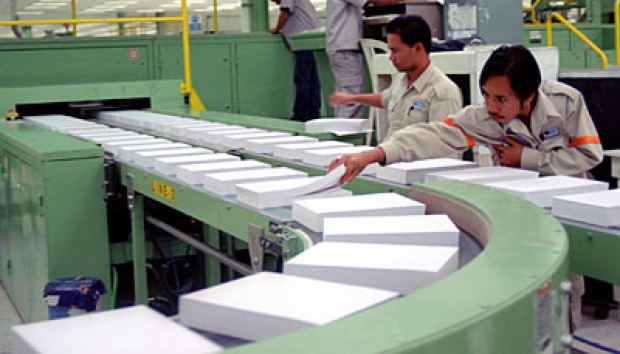Tariffs on paper from Indonesia ’potentially lethal’ for free trade deal

Sidney Morning Herald | 9 May 2017
Tariffs on paper from Indonesia ’potentially lethal’ for free trade deal
by Jewel Topsfield
The Australia Indonesia Business Council has launched an extraordinary attack on Australia’s decision to impose tariffs on cheap paper imported from Indonesia, warning its impact would be "potentially lethal" for free trade negotiations.
The Australian government announced on April 19 it would impose "dumping duties" on A4 paper from Indonesia, Brazil, China and Thailand after the Anti-Dumping Commission found the four countries had dumped paper into Australia.
Dumping is when a company’s export prices are lower than domestic prices in the country of export subject to various adjustments.
In a stinging column in the council’s May newsletter, president Debnath Guharoy said the decision flew in the face of Indonesian President Joko Widodo’s "pointed request in Sydney for a fair go on paper and palm oil". He said the decision effectively made it impossible to import paper from Indonesia.
"So we can now add bumf to boats, beef and Bali," Mr Guharoy wrote. "We unilaterally decide to turn the boats around, stop the exports of live cattle, raise hell over the death penalty and now rollback their paper. Each and every time, we expect the Indonesians to bow to our self-promoted higher standards, our much-touted lofty principles. Those of us who have lived in, worked in or frequently travel to Asia cringe at the disdain with which these proclamations are treated by our neighbours."
President Jokowi, as he is popularly known, and Australian Prime Minister Malcolm Turnbull have both said they would like to see the free trade deal – which is known as the Indonesia Australia Comprehensive Economic Partnership Agreement (IA CEPA) – concluded at the end of this year.
However, Indonesian Trade Minister Enggartiasto Lukita has called the paper dumping accusation "unfair" and Indonesia’s chief free trade negotiator Deddy Saleh told Fairfax Media the paper tariffs would "obviously" affect talks.
Anti-dumping specialist Roger Simpson, who represents Indonesian pulp and paper company Sinar Mas, told Fairfax Media he would appeal the decision to the anti-dumping review panel, after which it could go to the Federal Court. Indonesia has also flagged it could appeal to the World Trade Organisation.
Mr Guharoy said it was not enough to proclaim the independence of the Anti-Dumping Commission and questioned how many of its members travel.
"I understand that there are two major influencers in their decision: the ban on the export of timber logs and the low ’stumping fee’ in comparison to a neighbouring country like Malaysia," Mr Guharoy wrote.
"First, we should note that Indonesia does not ban the export of acacia and eucalyptus logs from which paper is made. Second, stumping fees in poorer countries like Cambodia and Laos would probably be even lower, if they had any fees at all."
Mr Guharoy said the case would head to the World Trade Organisation, as the effect of the "particular market situation" may have consequences beyond Australia.
"More importantly, from our bilateral perspective, it has put a roadblock in the IA CEPA’s way forward."
The Perth-based Indonesia Institute issued an unusual rebuke, calling for "cool heads" to prevail.
"While we understand Mr Guharoy’s irritation over this matter, we also feel that given the complexity, along with on-going concerns about so-called free trade agreements worldwide and including Indonesia, now should be a time for ’cool heads’ rather than outrage," president Ross Taylor said in a statement.
Mr Taylor said DFAT officials would have put an enormous amount of thought into the action the Anti-Dumping Commission had taken and the officials concerned "probably have indeed travelled before".
"As president of the Indonesia Institute and a former national vice-president of the Australia Indonesia Business Council, my concern is that if this issue is not handled with subtlety, we do run the risk of this tariff issue becoming a catalyst – for those who are anti-free trade – to have IA CEPA stall or collapse, and that would be a great disappointment."
Trade Minister Steven Ciobo told Fairfax Media negotiations on the deal continued as the two countries worked to finalise the agreement by the end of the year.
"Minister Lukita and I remain in regular contact as we work on this landmark agreement," Mr Ciobo said.
"I look forward to seeing him at the APEC trade ministers’ meeting in Hanoi later this month."





